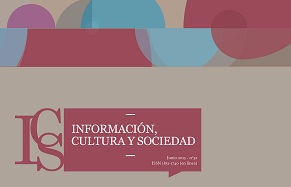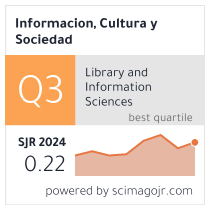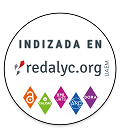The Right to be Forgotten and the persistence on the memory
Abstract
This work focuses on the current information society and telecommunications, and more specifically on the Internet environment, to develop the scope of the “right to be forgotten”. Said expression is the one that guarantees, to the physical persons that so require, that the information that has been published about them in Internet is removed from the Web under certain conditions and by the same means by which it was incorporated, thus protecting its rights to intimacy, honor and dignity, in a healthy balance with the right to information and freedom of expression, all of them encompassed within the most personal rights. The current relevance of this theme leads also to reconsider the role of libraries, among the emergence of this right, as defenders of the persistence of memory, always framing their activity within a healthy compensation between the protection of personal data and freedom of expression and information, and resolutely supporting the pillars of historical memory and the collective identity of society as a whole.Downloads
References
Borges, Jorge Luis. 1964. El otro, el mismo. Buenos Aires: Emecé.
Borges, Jorge Luis. 1969. Elogio de la sombra. En Obras completas I. Buenos Aires: Emecé.
Cifuentes, Santos E., h. 1997. Derecho personalísimo a los datos personales. En La Ley 1997-E, 1323.
Corte Suprema de Justicia de la Nación. 2014. Rodríguez, María Belén c. Google Inc. s/ daños y perjuicios. 28 de octubre de 2014 < http://www.saij.gob.ar/> [Consulta: 22 noviembre 2016].
De Terwangne, Cecile. 2012. Privacidad en Internet y el derecho a ser olvidado/derecho al olvido. VII Con-greso Internacional Internet, Derecho y Política. Neutralidad de la red y otros retos para el futuro de Internet. En Revista de los Estudios de Derecho y Ciencia Política de la UOC. N° 13, febrero 2012. <http://idp.uoc.edu/index.php/idp/article/view/n13-terwangne_esp/n13-terwangne_eng.> [Consulta: 4 agosto 2014].
González, Horacio. 2006. Segundo Encuentro de Bibliotecas Nacionales del MERCOSUR. <http://debiblioteca.blogspot.com.ar/2008/08/preservacin-y-conservacin-de-la-memoria.html> [Consulta: 4 agosto 2014].
González Allonca, Juan Cruz, 2014. Los buscadores de Internet y la ley de protección de datos personales. En La Ley 2014-I; Año LXXVIII, N° 123. Cita Online: AR/DOC/2108/2014. <http://aunoabogados.com.ar/images/Diario_3-7-14_-_Sup_Actualidad.pdf> [Consulta: 22 noviembre 2016].
Martín Pallín, José A. 1994. La ley orgánica de regulación del tratamiento automatizado de datos de carác-ter personal. Una visión crítica. En Informática Judicial y Protección de datos personales. Vitoria: Servicio Central de Publicaciones del Gobierno Vasco, p. 91, citado por Masciotra, Mario. 2012. El derecho al olvido. Reparación del daño ante su violación En Revista de Responsabilidad Civil y Seguros 2012-IX, 83; Cita Online: AR/DOC/4389/2012.
Masciotra, Mario. 2012. El derecho al olvido. Reparación del daño ante su violación En Revista de Respon-sabilidad Civil y Seguros 2012-IX, 83; Cita Online: AR/DOC/4389/2012.
Unesco. 1992. Memory of the World. <http://www.unesco.org/new/en/communication-and-information/flagship-project-activities/memory-of-the-world/homepage/> [Consulta: 4 agosto 2014].
Vaninetti, Hugo Alfredo. 2011. El derecho al olvido en Internet. En El Derecho. Tomo 242, 566.
Zavala de González, Matilde. 2011. Daños a la dignidad. Buenos Aires: Astrea. Tomo I, p. 7.
Bibliografía consultada
Bazán, Víctor. 2012. El hábeas data como proceso constitucional autónomo. Protección del derecho a la autodeterminación informativa. En La Ley 2012-F, 1052. Cita Online AR/DOC/5187/2012.
Fernández Delpech, Horacio. 2014. El derecho al olvido. Jurisprudencia del Tribunal de Justicia de la Unión Europea. En La Ley, 09/06/2014. Cita Online AR/DOC/1835/2014.
Gomes de Andrade, Norberto Nuno. 2012. El olvido: El derecho a ser diferente...de uno mismo. Una recon-sideración del derecho a ser olvidado. VII Congreso Internacional Internet, Derecho y Política. Neutralidad de la red y otros retos para el futuro de Internet. En Revista de los Estudios de Derecho y Ciencia Política de la UOC. N° 13, febrero 2012. <http://idp.uoc.edu/index.php/idp/article/view/n13-terwangne_esp/n13-terwangne_eng> [Consulta 4 agos-to 2014].
Guevara Palacios, Augusto M. 2014. El derecho a ser olvidado en Internet. El caso “Google” en la justicia europea. En La Ley 2014-A, 558. Cita Online: AR/DOC/3171/2013.
Molina Quiroga, Eduardo. 2015. Responsabilidad de los buscadores por contenidos publicados en Internet. En Revista de Responsabilidad Civil y Seguros 2015-XL, 5; Digesto Jurídico abril 2016, 1. Cita online: AR/DOC/3610/2015.
Palazzi, Pablo A. 2014. El reconocimiento en Europa del derecho al olvido en Internet. En La Ley, 09/06/2014. Cita Online AR/DOC/1953/2014.
Wolfzun, Nora. 2014. El derecho: una verdad traducida. En Jurisprudencia Argentina, 2014-II, fasc. 9, 89-96.
Authors publishing in this journal acknowledge the conditions below:
- Authors retain the copyright of their work while they transfer the right of the first publishing to the journal, under the Creative Commons Attribution-ShareAlike 4.0 International (CC BY-SA 4.0) Licence, which allows third parties to reproduce them under the condition that express mention is given to the author and to its original publication in the journal.
- Authors may enter into other contractual and independent arrangements for the non-exclusive distribution of the version of the article published in this journal (for instance, it can be published in an institutional repository or in a book). In any case, an express mention should be given to its first publication in the journal.
- It is permitted and encouraged to publish online the articles (for example, on institutional or personal pages).


























